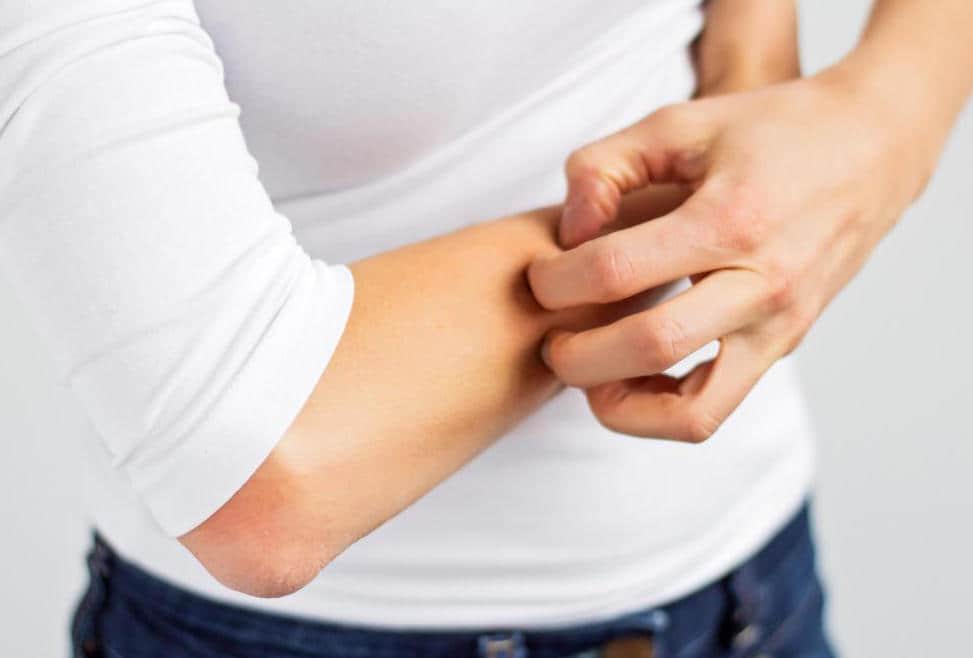
If you’ve got itchy, red patches of flaky skin that aren’t going away, there is a chance you may have psoriasis. Psoriasis is an autoimmune disease that causes a rapid buildup of skin cells that causes scaly, itchy patches on the skin’s surface. People with psoriasis have an increased skin production, meaning their skin cells surface within a week (normal production takes a month), not giving the dead skin cells time to fall off, causing scaly patches known as plaques. These patches are often found on hands, feet, neck, scalp and face.
It has not been determined what exactly causes psoriasis, but people with psoriasis have been known to have other conditions such as Type 2 Diabetes, IBS, heart disease, or psoriatic arthritis. Studies have shown that genetics and the wellbeing of the person’s immune system often play big roles in psoriasis.
There are seven types of psoriasis (see below), which each cause a variety of symptoms.
- Plaque Psoriasis: This is the most common form of psoriasis and causes itchy, red or silver scaly patches. The patches may itch, burn, or crack. About 80% of psoriasis sufferers have this type.
- Guttate Psoriasis: This type is usually triggered by a bacterial infection and can be characterized by small spots or scales on your arms, legs, and scalp. Less than 2% of psoriasis sufferers have this type.
- Inverse Psoriasis: This type affects areas such as groin, under breasts, and around genitals.
- Nail Psoriasis: This type of psoriasis affects the nails, fingernails and toenails, causing pitting and discoloration.
- Psoriatic Arthritis: This type of psoriasis is characterized by scaly skin and swollen joints.
- Pustular Psoriasis: This uncommon form of psoriasis mainly affects adults. It causes bumps filled with pus over a section of your skin.
- Erythrodermic Psoriasis: This is a very serious form of psoriasis. It can cause severe burning, peeling, and itching that can cover most of your body. These widespread areas make your skin look like it was burned. Due to the inflammation and stress it puts on your body, it can also increase your heart rate.
Unfortunately, psoriasis is a lifelong disease with no cure, although they are treatments available that can help with any discomfort you have. Treatment for this disease depends on the type that you have. There are oral and topical prescription medication that can provide you with relief from the itchiness or even the appearance of the plaques. Psoriasis can go into remission spontaneously or due to treatment. It can also get worse due to your immune system, stress, other illnesses, skin irritations, etc., which is why a treatment plan is important.
If you are suffering from scaly, itchy patches on your skin that do not seem to be responding to any over-the-counter treatment, please call our office to schedule an appointment. We can diagnose your condition and help reduce your symptoms.
Disclaimer: This blog provides general information and discussion about medical, cosmetic, mohs, and surgical dermatology. The words and other content provided in this blog, and in any linked materials, are not intended and should not be construed as medical advice. If the reader or any other person has a medical concern, he or she should consult with an appropriately-licensed dermatologist or other health care worker.
